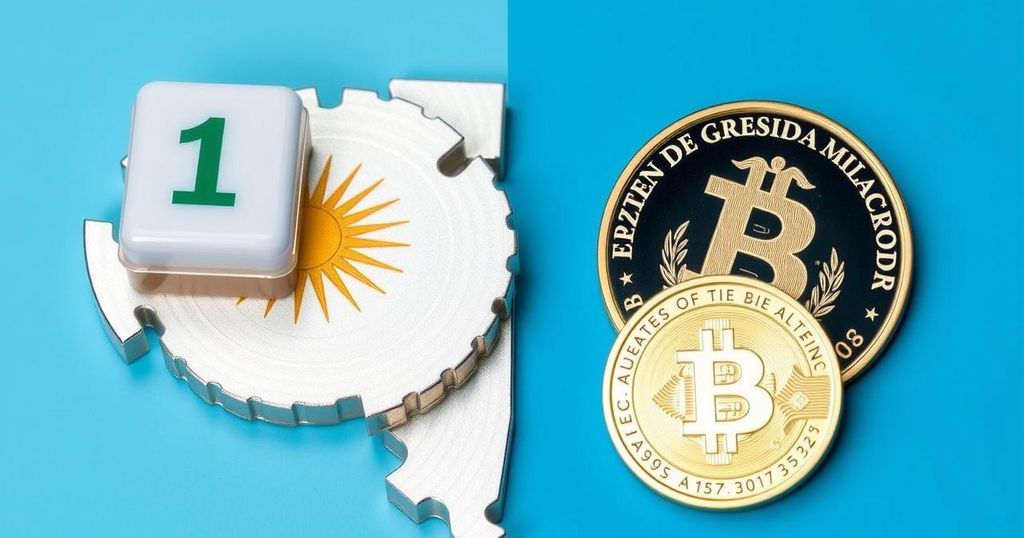Latam Insights: El Salvador Secures IMF Deal as Argentina Enhances Crypto Security

This week’s Latam Insights covers key developments in cryptocurrency regulations: El Salvador’s $1.4 billion IMF agreement, Argentina’s anti-crypto crime initiative, and Brazil’s planned Senate session on cryptocurrency markets in 2025. These events highlight ongoing economic adjustments and responses to the growing prominence of digital currencies in Latin America.
In the realm of Latin America’s economy and cryptocurrency landscape, significant developments have unfolded over the past week. El Salvador has entered into a pivotal agreement with the International Monetary Fund (IMF), which is projected to limit the country’s bitcoin adoption. Meanwhile, Argentina has decided to combat cryptocurrency-related crimes through the establishment of specialized patrol units. Lastly, there is proactive legislative activity in Brazil, as the Senate has slated a session in 2025 to deliberate the implications of cryptocurrency in the local economy.
El Salvador’s President Nayib Bukele has secured a $1.4 billion credit facility from the IMF as part of a broader effort to stabilize the national economy and gain additional backing from other financial institutions. This agreement, however, necessitates a reduction in the emphasis on bitcoin within El Salvador’s economic framework. The IMF has noted improvements in the country’s fiscal health post-pandemic, and the credit aims to bolster these positive trends while enhancing the likelihood of further support from organizations such as the World Bank and others in the region.
In Argentina, the Security Ministry has recently adopted Resolution 1330/2024, which extends the monitoring of illegal activities to encompass crimes involving cryptocurrencies. The resolution mandates federal security forces to develop strategies aimed at tackling unauthorized financial intermediation using crypto assets. Officials emphasize that the rapid progression of the cryptocurrency sector has given rise to cybercrime, notably pyramid schemes that exploit individuals seeking financial gains.
In Brazil, discussions regarding cryptocurrency are becoming increasingly pertinent within legislative circles. A diverse coalition of senators has called for a specific session in 2025 aimed at exploring the current state of cryptocurrency markets. The session is set to consider both the opportunities and challenges presented by increased cryptocurrency adoption, with predictions of widespread use among the population by 2030. Given Brazil’s significant position in Latin America’s crypto adoption landscape, the meeting will likely set the groundwork for future legislative initiatives in this domain.
The recent developments in El Salvador, Argentina, and Brazil reflect the evolving landscape of cryptocurrency regulation and economic strategy in Latin America. El Salvador’s engagement with the IMF highlights the relationship between national financial stability and cryptocurrency policies, while Argentina’s proactive measures against crypto-related crimes depict a commitment to safeguarding the financial ecosystem. Furthermore, Brazil’s potential legislative approaches suggest an acknowledgment of the significant role that digital assets will play in the future economy.
In summary, Latin American countries are actively navigating the complexities of cryptocurrency incorporation within their economic and legislative frameworks. El Salvador’s strategic IMF agreement underscores a shift away from bitcoin during broader economic reforms, while Argentina emphasizes the importance of security in the crypto sphere. The upcoming legislative discussions in Brazil signify a movement towards a more comprehensive understanding of digital assets, which may pave the way for future regulatory frameworks and economic advancements in the region.
Original Source: news.bitcoin.com








